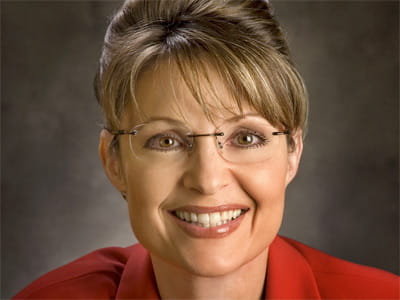Brought to you by The New Republic Online
 A woman I recently met at a Bat Mitzvah asked me what I do for a living. Experience told me what was coming, so I kept my answer generic: I work in politics. She followed up, pressing until she got the answer she wanted--or, more accurately, did not want: I work for Senator John Ashcroft, Republican of Missouri. I'm used to fellow Jews disliking my boss, but her answer still took me by surprise: "I'm speechless."
A woman I recently met at a Bat Mitzvah asked me what I do for a living. Experience told me what was coming, so I kept my answer generic: I work in politics. She followed up, pressing until she got the answer she wanted--or, more accurately, did not want: I work for Senator John Ashcroft, Republican of Missouri. I'm used to fellow Jews disliking my boss, but her answer still took me by surprise: "I'm speechless."With his nomination to be George W. Bush's attorney general, Ashcroft's image among my co-religionists seems to have deteriorated even further. The National Council of Jewish Women opposes his appointment. Jewish senators like Barbara Boxer and Charles Schumer have expressed their displeasure. Abraham Foxman, national director of the Anti-Defamation League, said this week, "We question whether his religious views will have an impact on his role as attorney general." I'm beginning to wonder whether I'll ever be able to safely cruise Bat Mitzvah buffet tables again.
Critics imply that Ashcroft, because of his strong Christian beliefs, is intolerant of Jews. Actually, he's more than tolerant; he's downright philo-Semitic. Ashcroft was born to a gentile family in a predominantly Jewish Chicago neighborhood. His mother served as a Shabbos goy, turning ovens on and off as needed (a practice many Jews found charming when practiced by a young Colin Powell--but then Powell is African American and pro-choice). Ashcroft's father even took a mezuzah with the family when they moved from Chicago to Springfield, Missouri, where he kept it affixed to his doorpost until his death, in 1995. Ashcroft, I'd wager, knows more about Judaism than half the Jewish members of the Senate.
Ashcroft, his detractors suggest, is a religious fanatic, because his religion dictates that he cannot smoke, gamble, drink, curse, or dance. But it may be precisely because he is scorned as a "fanatic" that he has been so tolerant of my own somewhat odd religious practices. After all, when I go to weddings, I won't participate in mixed dancing. I fast half a dozen times a year, and I unscrew the lightbulb in my refrigerator every Friday so I won't turn on the light on the Sabbath. I'm every bit the "fanatic" that he is--maybe more so.
What most liberals and most Jews don't understand about people like Ashcroft is that their deep respect for religious faith genuinely transcends sectarian divides. And that often makes it easier for me, as a religious Jew, to work for them than for Jews or Christians who don't take any religion seriously as a force in people's lives. In my experience, when you tell a nonobservant Jewish boss you need time off for Shavuot, there is often a moment of discomfort, as if he thinks you are acting superior for taking off what many Jews see as a minor holiday. When you tell an observant gentile, he may ask you what the holiday is and then say he is happy that you are observing Pentecost.
And there's another reason for Ashcroft's sensitivity. It's not just that as a devout person he feels an affinity to other believers. He feels a particular affinity to members of minority religions, because, hard as it is for many Jews to understand, he also sees himself as part of a small, sometimes scorned religious minority.
Ashcroft is a member of the Assemblies of God (often called Pentecostals). Members of the AOG are probably even less well-represented in the upper echelons of American politics, industry, and academia than are Orthodox Jews. In fact, Ashcroft would be only the second AOG Cabinet member ever. I know Ashcroft has suffered religious bigotry, because I've seen it. In St. Louis before the election, some people told me they were uncomfortable with the fact that his faith forbids him to gamble, smoke, dance, drink, or curse. I could not help but wonder how these people would feel about a non-Jew who expressed similar misgivings about a Jewish politician--like Joseph Lieberman--who did not eat cheeseburgers or ride on the Sabbath and who threw out all his bread products every spring.
Jews sometimes seem to view members of the Christian right as contemporary versions of the Christian zealots who oppressed Jews in eighteenth-century Ukraine or fifteenth-century Spain. But I see them as more like the Puritans, who encountered religious prejudice in England and braved death to come to the New World, where they could be "fanatics" in peace. And, because they knew that their observances made them objects of scorn in the old world, they helped create a new world that demanded religious toleration, even for religious beliefs that they themselves rejected. If Jews, or anyone else, oppose Ashcroft because of his views on affirmative action or abortion or antitrust, I might disagree, but I can understand. But if they oppose him because they think his faith oppresses others, then they misunderstand his religion, and perhaps even their own.
Read more on politics, the arts and cyberspace at The New Republic Online

